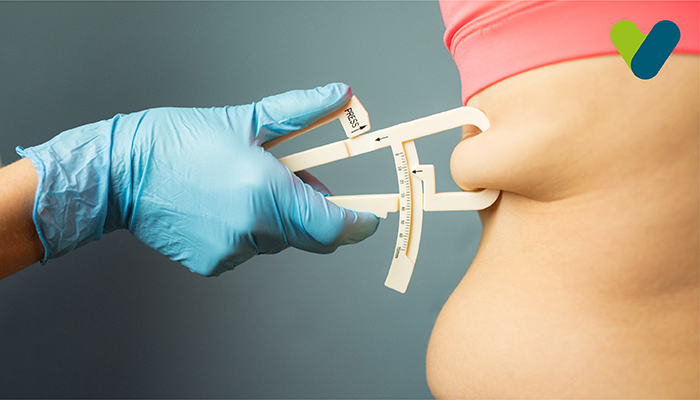Weight loss surgery is gradually becoming the most desired option for people with obesity and weight problems. Weight loss is important to protect the body from the side effects of excessive fat deposition and clinical conditions like high blood pressure. The type of surgery that cuts down body fat is called bariatric surgery. Besides obesity, this surgery is also effective in treating diabetes, high cholesterol, blood pressure, and some sleep disorders. This surgery helps prevent weight-associated health problems and also provides a longer and healthier lifespan to the patient. The bariatric surgery procedures of today's world are highly advanced and have been made better throughout the years.
These operations are done with the help of specialized surgical technology, ensuring minimum side effects. Such ease of operation is highly beneficial to patients as it minimizes pain and discomfort, shortens hospital time as well as the recovery period. The procedures are quite safe and produce far lesser complications as compared to common surgeries of the gallbladder, uterus, etc. The main objective of these procedures is to change the size of the intestines and stomach, leading to reduced hunger and fat absorption. Often, a portion of the stomach or intestines is removed. This helps in controlling body weight and decreases appetite.
How to know if you are a candidate for weight loss surgery?
Bariatric surgery does seem to be a quick fix to your weight gain issues, but you have to remember that not everyone is fit to undergo this surgery. This is mainly determined by a person's BMI (Body Mass Index). If you are an adult who wants to undergo the procedure, you have to meet the following requirements:- A minimum of 1 obesity-associated health condition
- BMI of at least 35
- No change in weight after at least 6 months of controlled diet or supervised physical exercise.
- BMI of 40 or more along with an obesity-related health disorder
- BMI of 35 or more accompanied with a severe obesity-related health issue.
A thorough medical exam will be carried out on you by your doctor to detect any underlying and unaddressed health problems that could add complications to the surgery and delay the recovery process. Such disorders include liver disease, kidney disease, sleep disorders, and cardiovascular problems. Your doctor will prescribe medication for these conditions before proceeding. However, if you are diagnosed with more serious conditions such as blood clotting disorders, serious heart problems that don't allow the use of anesthesia or any other conditions that make using anesthesia risky, the surgery will not be carried out by your doctor.
Your healthcare team will consist of not only surgeons but also dieticians, psychologists, anesthesiologists, etc. Post-surgery, your food habits and diet will affect your ability to lose weight. Your psychologist will try to predict any psychological or behavioral issues you might encounter after the surgery, which could affect your diet and health. A few factors that will be taken into consideration before your surgery are :
- Motivation: The team will assess your ability to keep yourself motivated, embrace new life changes and stick to new food habits and recommended diet.
- Eating behaviors: People who practice irregular eating habits or binge eat have high chances of gaining back their weight after surgery. Mood disorders and other mental health conditions can also change a person's eating behavior.
- Weight-loss history: They will try to find out the methods you had adapted in the past to reduce weight and the extent of their effectiveness. Based on this observation, you will be recommended post-surgery medication and other physical activities.
- Alcohol, smoking, and drug use: Repeated usage of alcohol and drugs after surgery can greatly affect the process of weight loss. Smoking is another major factor that can delay the process. Patients suffering from alcohol addiction or smoking are usually not allowed for surgery as it can also give rise to many complications and side effects.
- Mood disorders: Bipolar disorder, depression, and other mood disorders affect the losing of weight and can also indicate the patient's inability to follow new diet plans and charts, which are important after the surgery.
- Suicidal tendency: Patients are at an increased risk of suicide after weight-loss surgeries due to the post-traumatic stress incurred. The risk is especially higher in people who are or have suffered from mental health conditions such as depression, schizophrenia, bipolar disorder, anxiety, etc.
Some common weight loss procedures
1. Gastric Bypass Surgery - Gastric bypass is a very effective method for treating obesity and other weight-related health issues. The procedure involves the division of the stomach into a small pouch. The other larger portion is bypassed and does not store food anymore. The small intestine is connected to the stomach to enable the passing of food.Advantages: Long-lasting and effective, treat obesity-related health disorders, and is performed using advanced medical technology - minimum complications.
Disadvantages: Patients might suffer from vitamin and mineral deficiency, risk of ulcer development, nausea after eating and consuming sweets, a more complex procedure than others of the same nature.
2. Sleeve Gastrectomy - In this surgery, 80% of the stomach is removed, and the remaining portion of the stomach is shaped like a banana, thus making it smaller in size.
Advantages: Not too time-consuming, even patients with high health risks can undergo surgery, which can be performed on patients as the first treatment for obesity.
Disadvantages: Irreversible, may cause heartburns
Despite the success rate of these surgeries, it is highly suggested that patients consult an experienced doctor or surgeon to determine if they are fit for the procedures. Proper care and rest should be taken after the surgery to get the best results.


